Oct
22
2013
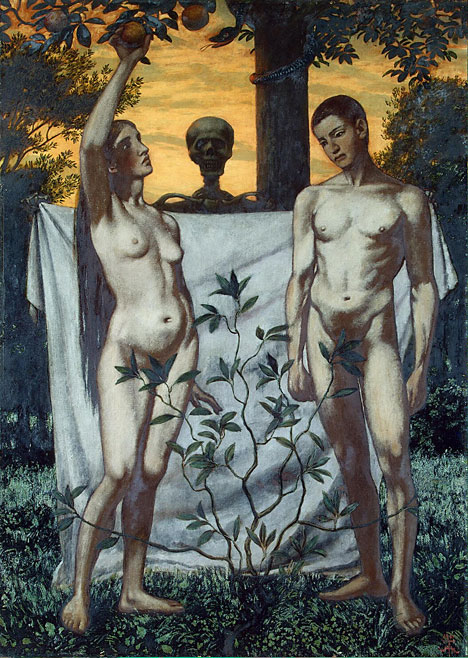
When Moses is given the Ten Commandments they are written on two tablets:
And he declared to you his covenant, which he commanded you to perform, that is, the Ten Commandments, and he wrote them on two tablets of stone. (Deuteronomy 4:13)
Why are the Ten Commandments written on two tablets? Was one tablet not big enough for God’s handwriting? Or did God give Moses two copies of the Law, one tablet being a duplicate of the other?
Continue reading
Comments Off | tags: Aaron, Covenant Theology, Exodus, Literary Structure, Meredith Kline, Moses, Ray Sutton, Ten Commandments | posted in Bible Matrix, Biblical Theology, Q&A
Oct
9
2013
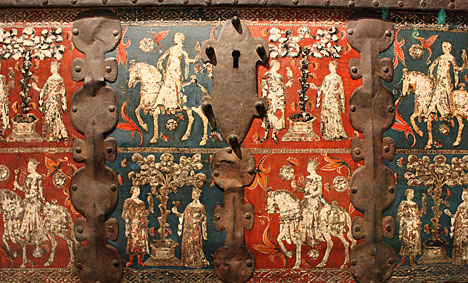
or Marriage is a Glory Box, a Hope Chest
In 1 Peter 3:7, the apostle writes:
Likewise, ye husbands, dwell with them according to knowledge, giving honour unto the wife, as unto the weaker vessel, and as being heirs together of the grace of life; that your prayers be not hindered.
The phrase “according to knowledge” (gnosis) is rendered “in an understanding way” in the NKJV and ESV. But is the exhortation for the husband to understand his wife, or to understand the source of his authority as her husband?
Continue reading
Comments Off | tags: AD70, Evolution, Genesis, Marriage, Totus Christus | posted in Bible Matrix, Biblical Theology, Creation, Q&A, The Last Days
Sep
24
2013
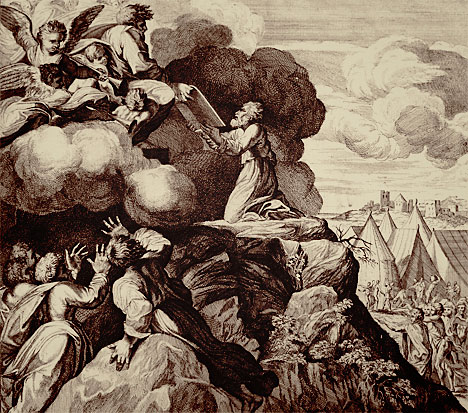
In John 16:7-11, we read:
Nevertheless, I tell you the truth: it is to your advantage that I go away, for if I do not go away, the Helper will not come to you. But if I go, I will send him to you. And when he comes, he will convict the world concerning sin and righteousness and judgment: concerning sin, because they do not believe in me; concerning righteousness, because I go to the Father, and you will see me no longer; concerning judgment, because the ruler of this world is judged.
What does it mean for the Spirit to “convict the world in regard to righteousness?” And what is the causal connection with Jesus going to the Father?
Continue reading
Comments Off | tags: Covenant Theology, Exodus, Firstfruits, Fractals, Genesis, Jacob, John, Literary Structure, Moses, Revelation | posted in Bible Matrix, Biblical Theology, Creation, Q&A, The Last Days
Aug
22
2013

What does “Under the Sun” mean in Ecclesiastes?
Genesis 1 tells us that the purpose of the sun, moon and stars is to act as kingly governors of the physical realm. They were created at the centre of the Creation Week (Day 4), before Man, yet Man was not to bow down to them.
And beware lest you raise your eyes to heaven, and when you see the sun and the moon and the stars, all the host of heaven, you be drawn away and bow down to them and serve them, things that the Lord your God has allotted to all the peoples under the whole heaven. (Deuteronomy 4:19)
The reason for this is that although Genesis 1 presents Man as part of the physical order, Genesis 2 moves him beyond this to a social order. When Adam perceives that he is without a mate, he is “bowed down,” physically humbled, that Woman might be constructed. Adam’s order would not be like that of the animals. His rule from its very beginning would be “sacrificial.” Men would not bow to the stars (or to idols) but to each other, because all men are images, reflections, of God. Adam was to subdue the physical order and bring it into submission, and yet submit to other men. The sinful reverse of this is the worship of the physical order (which is yet inherent in the scientism of our own age) and the tyrannical subjugation of our fellow men, which is exactly what happened in Genesis 3. Physical, Social, Ethical.
Continue reading
Comments Off | tags: AD70, Covenant Theology, Lampstand, Revelation, Solomon, Tabernacle | posted in Bible Matrix, Biblical Theology, Q&A, The Last Days
Jul
19
2013

“So, perhaps the best conclusion is that John was not looking for encouragement, but giving encouragement. In effect, he was saying, ‘Get on with it, cousin!’”
The nature of the texts of the Bible is just like the spoken words God gave to Adam. A great deal remained unsaid, and Adam was to “read between the lines” based upon God’s revealed character as his Father. However, Adam let somebody else fill in the gaps with some conflicting information about God’s character, somebody who was very likely jealous of Adam’s commission and had an ax to grind (and even here, we are left to fill in the gaps as to Satan’s motive based upon later scriptures!)
Continue reading
7 comments | tags: Albert Garlando, Bible Matrix III, John the Baptist, Literary Structure, Luke, Tabernacle | posted in Bible Matrix, Biblical Theology, Q&A
Jun
1
2013
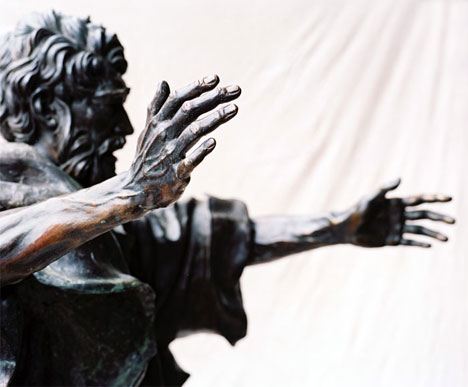
How does Peter see the apocalyptic imagery of Joel in the events of Acts 2?
The first step is to take note of the context of Joel’s prophecy. It is the coming destruction of Jerusalem in 586 BC.
And it shall come to pass that everyone who calls on the name of the Lord shall be saved. For in Mount Zion and in Jerusalem there shall be those who escape, as the Lord has said, and among the survivors shall be those whom the Lord calls. (Joel 2:32)
Even if we identify the context, it may sound to us as if Joel is still looking forward to the first century events at the end of his predictions. The unfortunate chapter break between 2 and 3 stops us reading further, but if we keep reading without a break, the beginning of chapter 3 makes it clear that Joel is still speaking about the restoration from exile. God would judge all the Canaanite nations, including Israel, who had behaved like a Canaanite. But only Israel would resurface from the “flood” of Babylonian control, while all the Canaanite powers remained scattered forever. And Israel would be vindicated across the world, from India to Ethiopia, in the events of the book of Esther (predicted in Ezekiel 38-39).
This means that the particular “day of judgment” had already passed by the time Peter quoted the prophet, so he is not quoting the prophecy to announce its soon fulfillment. He is, however, announcing a similar destruction of Jerusalem and its Temple, with all that this entails.
Continue reading
Comments Off | tags: Acts, Joel, Pentecost, Peter | posted in Biblical Theology, Q&A, The Last Days
May
11
2013

What is the referent of “body of Christ” in 1 Corinthians 11:29?
“For anyone who eats and drinks without discerning the body eats and drinks judgment on himself.”
Continue reading
Comments Off | tags: Baptism, Communion, Corinthians, Covenant curse, Covenant Theology, Doug Wilson, Literary Structure, Melchizedek, Numbers 5 | posted in Bible Matrix, Biblical Theology, Christian Life, Q&A
Apr
20
2013
 or The Killer Hermeneutic
or The Killer Hermeneutic
An online acquaintance asked: “There’s a hermeneutical method that’s been used on this site called ‘systematic typology’. What is it? How does one apply it? Are there contexts where it is considered to be a particularly good or particularly bad fit? Where can one go to learn more about it? And where does it come from? (Who developed it, and based on what?)
Continue reading
Comments Off | tags: Hermeneutics, Literary Structure, Systematic typology | posted in Apologetics, Bible Matrix, Biblical Theology, Q&A
Apr
11
2013
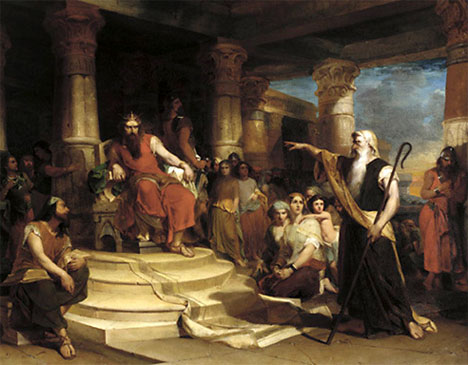 “…there is no sacrifice to Bathsheba…”
“…there is no sacrifice to Bathsheba…”
Jon Ericson asked this question on the Biblical Hermeneutics site:
To what extent is Psalm 51:4 poetic exaggeration?
The context of Psalm 51 is clear:
To the choirmaster. A psalm of David, when Nathan the prophet went to him, after he had gone in to Bathsheba.
These events are described in 2nd Samuel 11–12. In summary, David essentially murdered Uriah the Hittite in order to cover up an affair with Bathsheba, Uriah’s wife. So this verse causes me trouble:
Continue reading
Comments Off | tags: David, Hermeneutics, Psalms, Samuel | posted in Biblical Theology, Q&A
Mar
5
2013
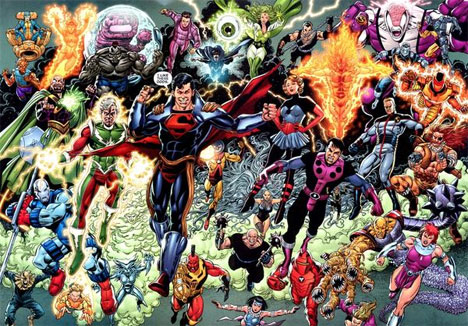 Were the Nephilim in Genesis 6 angels or aliens?
Were the Nephilim in Genesis 6 angels or aliens?
The Nephilim (“great” or “amazing”) were the first “mighty men” of the Bible. They were the result of the intermarriage between the priestly sons of Seth and the rebellious Cainite kings. The text gives us a split genealogy after the murder of Abel, priests serving God outside the garden, and Cain’s false kingdom (Cain went and built a “fortress” to protect himself). So, humanity was divided into two camps: those who served God as their king and those who rebelled against Him.
Continue reading
17 comments | tags: Cain, Compromise, Genesis, James Jordan, Nephilim | posted in Biblical Theology, Creation, Q&A, The Last Days



































